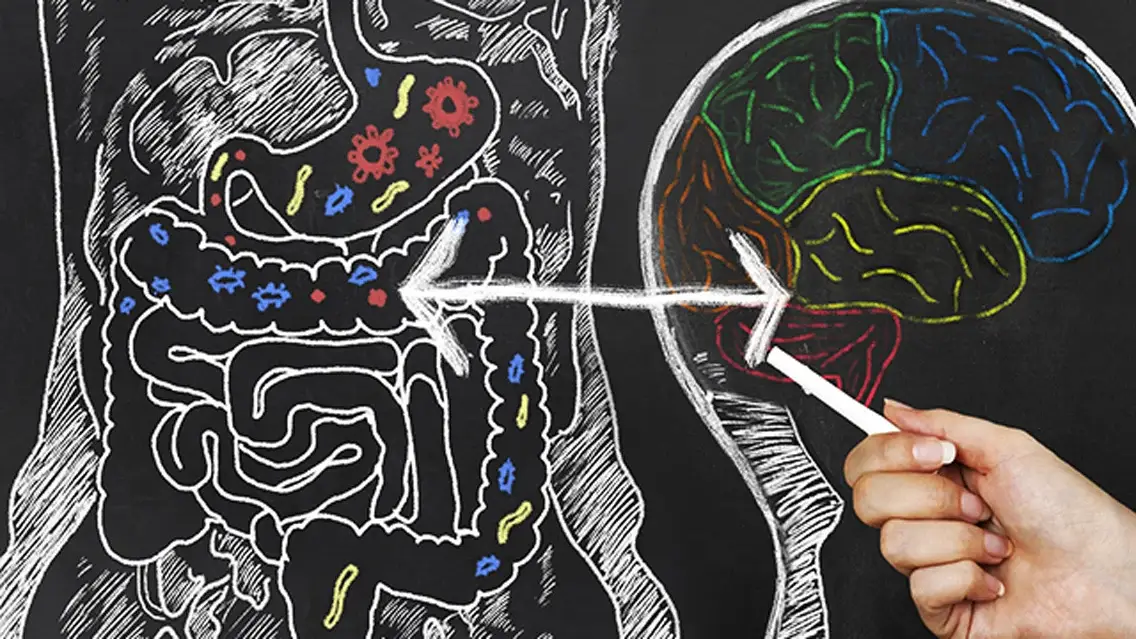Common stomach bacteria linked to Alzheimer’s disease – impacts 40 million people globally
Groundbreaking new study links bacterial infection with moderate but significant increase in the risk of Alzheimer’s disease in older adults

Alzheimer’s disease (AD), the most prevalent form of dementia, affects approximately 40 million people worldwide. (CREDIT: CC BY-SA 3.0)
Alzheimer's disease, the most common form of dementia, impacts around 40 million people globally, with numbers expected to rise significantly in the future. Despite its widespread effect, finding effective treatments has been challenging.
Recently, researchers have uncovered a potential link between a prevalent stomach bacterium, Helicobacter pylori (H. pylori), and an increased risk of Alzheimer’s. This discovery by a McGill University research team suggests new directions for exploring the role of infections in Alzheimer’s and developing preventive measures.
The Helicobacter pylori Connection
H. pylori is a bacterium present in the stomachs of about two-thirds of the world’s population, primarily known for causing gastrointestinal issues like indigestion, gastritis, ulcers, and even stomach cancer. However, recent studies indicate it may also play a role in the development of Alzheimer’s disease.
The groundbreaking research, published in Alzheimer's & Dementia: The Journal of the Alzheimer's Association, sought to determine whether H. pylori infections are linked to a higher risk of Alzheimer's, especially in people over 50.
Dr. Paul Brassard, the study’s senior author and a Professor in McGill’s Department of Medicine, highlighted the significance of this research, stressing the urgent need for effective strategies against Alzheimer’s as dementia cases are expected to rise due to the aging global population.
To explore this potential connection, the research team analyzed health data from over 4 million individuals aged 50 and older in the United Kingdom, covering the years from 1988 to 2019. This extensive dataset provided a solid foundation for examining the relationship between H. pylori infections and the risk of developing Alzheimer’s disease.
Related Stories
The study's findings were significant: individuals with symptomatic H. pylori infections faced an 11% higher risk of developing Alzheimer’s, the most common form of dementia. While the exact cause of Alzheimer’s remains complex and multifaceted, these results contribute to a growing body of evidence that suggests infections, particularly H. pylori, may play a crucial role in its development.
Implications and Future Directions
The implications of this research are vast. With the global population aging, the prevalence of dementia, including Alzheimer’s, is expected to triple over the next 40 years. Dr. Brassard emphasized the urgent need for effective treatment and preventive strategies to address this impending healthcare crisis.
One of the most significant aspects of the study is its potential to influence future preventive measures. Dr. Brassard pointed out that the role of H. pylori in dementia could be crucial in developing prevention strategies. He suggested that individualized eradication programs to reduce H. pylori infections could be a vital step in combating Alzheimer’s disease.
The research conducted at McGill University is just the beginning. It has opened new avenues for further investigation into the role of H. pylori in Alzheimer’s. Several key areas are now poised for exploration:
Understanding Mechanisms
A deeper understanding of the mechanisms by which H. pylori may contribute to Alzheimer’s is essential. By identifying specific pathways, scientists could develop targeted treatments or preventive measures to mitigate the bacterium’s impact on brain health.
Eradication Programs
The development of individualized eradication programs to reduce H. pylori infections is another critical area of research. These programs might involve screening and treating individuals with H. pylori infections, particularly in older adults, to lower their risk of developing Alzheimer’s.
Population-Level Interventions
The broader implications of this research suggest the need for public health interventions. Governments and healthcare organizations might consider implementing widespread efforts to reduce H. pylori infections. Such initiatives could potentially impact Alzheimer’s rates at the population level.
Early Detection
Detecting H. pylori infections early in life and monitoring their long-term effects on brain health could provide valuable insights into Alzheimer’s risk. This proactive approach might lead to earlier interventions and more effective prevention strategies.
Treatment Strategies
Researchers are also exploring whether eradicating H. pylori infections in individuals with a high risk of Alzheimer’s could reduce their chances of developing the condition. This could represent a groundbreaking approach to preventing Alzheimer’s disease.
Dr. Brassard summarized the study's importance, stating, "We hope the findings from this investigation will provide insight on the potential role of H. pylori in dementia in order to inform the development of prevention strategies, such as individualized eradication programs, to reduce infections at the population level."
With continued research, the fight against Alzheimer’s may gain a powerful new ally in the form of this common stomach bacterium. By focusing on the potential role of H. pylori, scientists could unlock new strategies for preventing or delaying the onset of Alzheimer’s, providing hope in the battle against this devastating disease.
Note: Materials provided above by The Brighter Side of News. Content may be edited for style and length.
Like these kind of feel good stories? Get The Brighter Side of News' newsletter.



